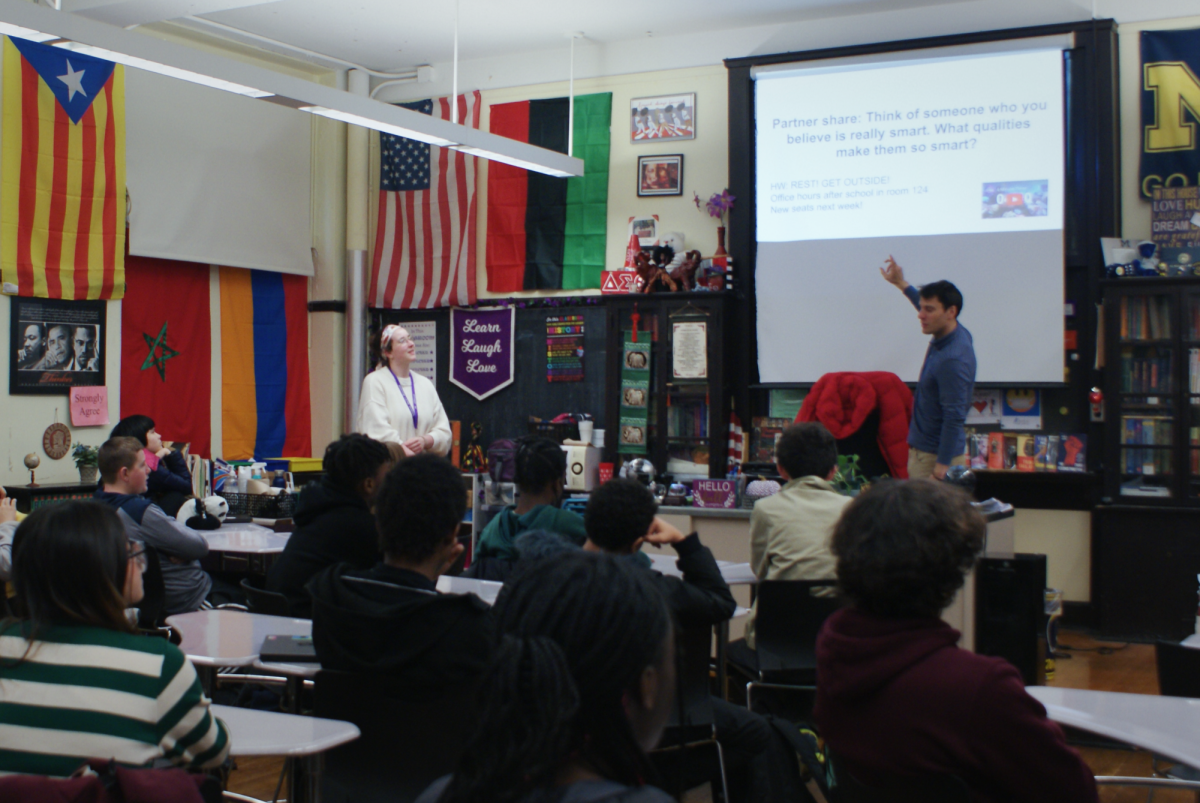You’ve just opened SIS to your grade suddenly having dropped by four percent. You feel your heart sink to your stomach. Boston Latin School’s students are no strangers to this all-too-familiar discouraging feeling. It seems that once a student receives a below-average score on an assignment, there is no chance of recovery. Many students who experience this spend the rest of their term distressed over that singular percentage, rather than focusing on actually learning and improving.
Noah Huang (III) voices many students’ thoughts, saying, “If you got a 50 and that dunks your grade down a whole letter, then with no test corrections, you have to pray to God that you do well on the next test.”
One negative score can dramatically impact a student’s overall grade in a class, even if they significantly improve afterward. A series of negative scores can go on to heavily affect their GPA, even if they put loads of energy into their academics in the future.
Ideally, students’ grades should reflect their efforts. BLS Science Program Director Ms. Kathleen Bateman says, “If students get dissuaded earlier in the year and have a difficult time with some of the foundational material, their whole year is lost.”
Assessment correction opportunities are an effective way to ensure that students are retaining information to prevent the same mistakes and provide a bit of encouragement with their grade — a win-win situation.
Many teachers view high standards of grading as a way to motivate students, but this method often neglects to consider the students’ perspective. Rather than feeling inspired and driven, students often lose the desire to learn and grow after simply receiving unreasonably low grades.
At a school like BLS, students are held to high standards, but that doesn’t mean getting an “A” should feel entirely out of reach. A good grade should be the result of hard work and maximum effort placed wholeheartedly into learning a subject, not the result of how well a student can simply regurgitate trivia within a 20-minute testing session.
A mere number or letter on a pixelated screen isn’t the best way to reflect the quality of someone’s learning. For many students, their confidence plunges when they see low scores on their report cards. In these situations, BLS staff should be ready to provide support and reassurance.
BLS AP World History teacher Mr. Eric Cordeiro says, “There’s nothing wrong with failure. I know that’s hard to hear at BLS, but there’s nothing wrong with that when you fall down. You have to move on.” If teachers can promote positive mindsets about change and one’s grades, they will help students gain the ability to face academic challenges.
With time, teachers can adjust their teaching methods and assessment policies to better suit their students. While this looks different for each teacher, some consider how their pupils feel about their class. Mr. Cordeiro expresses, “For the mental health of students, my concern is always how much work we give students and overloading students.”
The BLS Handbook also sets a 30-minute homework limit for regular classes and a 45-minute homework limit for honors and AP classes. While it is understandable that the limitations will restrict the amount of information teachers are able to go through during class, they should adhere to the policies dictated by the school.
Many students balance a variety of other responsibilities and commitments outside of classes. With many teachers exceeding the standardized boundaries and taking advantage of their authority, students ultimately feel beaten down by an unbearable workload.
Due to the subjectivity of teachers’ teaching styles and grading, students may experience extreme grade variation from year to year, despite consistently dedicating an immense amount of effort to their academics. This is especially detrimental to students’ confidence, as they may feel that they have lost their ability to succeed in a subject.
To combat this, it’s important for school staff to not only gauge student perspectives, but also value their ideas. Ms. Bateman notes, “What we’ve learned by making sure that students feel empowered, supported and capable at their introductory science class is that they feel more confident taking an AP.”
If teachers are willing to adjust and try new strategies, they can create positive environments for growth, strengthening their students’ motivation for envisioning a successful future.
Categories:
The Dangers of Subjective Grading
January 22, 2024
Mr. Nicholas Fogel draws the attention of his class with a captivating Do-Now.
(Source: Ada Zhao (IV))
0




















